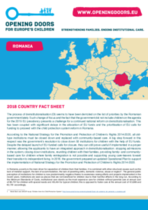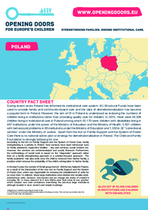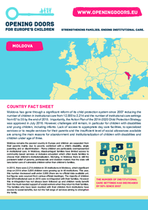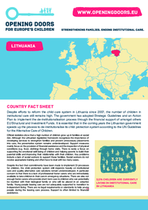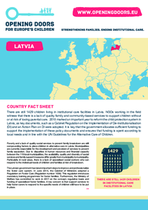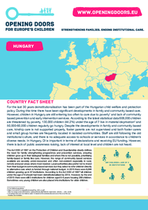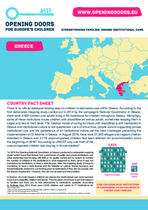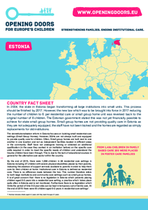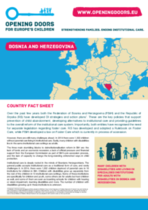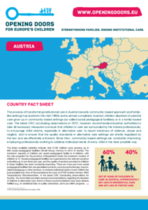Romania: Country Fact Sheet
In 2018, there were still 185 institutions in Romania housing 6,632 children. 2,997 children with disabilities were living in 81 institutions for children with disabilities in Romania. The majority of children in out-of-home care were placed in family based care, including 18,317 children in foster care and 18,437 children in kinship care.

